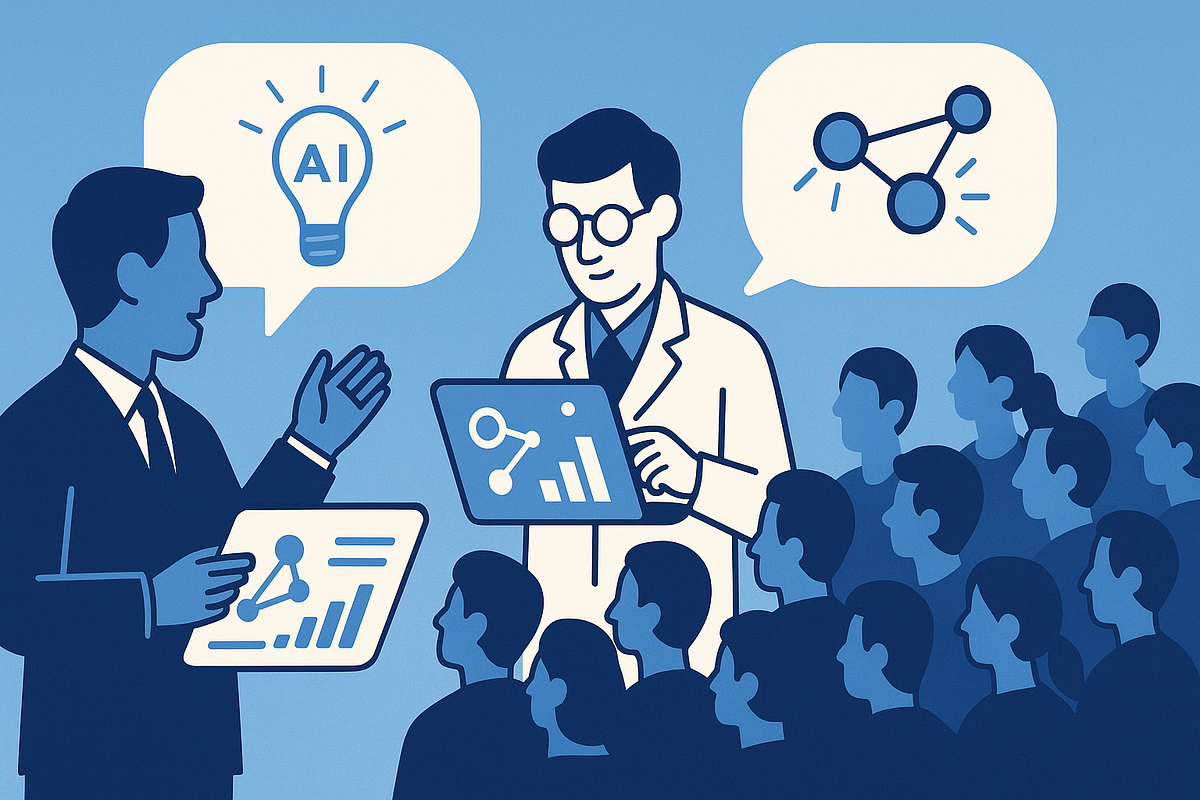It started with a ringing phone in a high school principal’s office.
A worried teacher had noticed students breezing through essays at record speed, without ever looking up a single book. When the principal asked how, the answer was the same one echoed in classrooms worldwide: “AI did it for me.”
That moment wasn’t about technology; it was about everything at stake in how we learn, remember, and think.
Today, as AI rewires our cognitive architecture, education stands at a crossroads. To shape tomorrow’s leaders, we need more than tools; we need stories about what’s gained, what’s lost, and what’s truly possible when humans and AI learn side by side.
🧠 The Brain Connectivity Crisis
The MIT study revealed a striking neurological hierarchy: students using AI showed up to 55% lower brain connectivity compared to those writing without tools. This isn't just about convenience—it's about cognitive architecture
Key Finding: EEG measurements showed three distinct brain patterns:
Brain-only writers: Highest connectivity across memory, creativity, and semantic processing regions
Google Search users: Intermediate brain engagement
AI users: Weakest overall neural coupling, especially in alpha and theta bands associated with deep learning
The Memory Gap: When asked to rewrite previous essays, AI users couldn't quote their own work and showed "bypassing of deep memory processes". As researcher Nataliya Kosmyna noted: "The task was executed...but you basically didn't integrate any of it into your memory networks."
📝 The Creative Paradox: AI as Golden Retriever vs. Ghost Writer
Yale's Megan O'Rourke,, executive editor of The Yale Review and a professor of creative writing at Yale University, captured the seductive nature of AI assistance perfectly: "I felt like I had an intern with the cheerful affect of a golden retriever and the speed of the flash".
The Initial Benefits:
Conserved energy for higher-order thinking
Restored sense of agency for overwhelmed professionals
Made daunting tasks "suddenly manageable"
The Hidden Cost:
"A ghost with silky syntax had colonized my brain, controlling my fingers as they typed"
Loss of connection to personal writing voice
Interference with authentic thought processes
Critical Question: "What happens to students who've never experienced the reward of pressing towards an elusive thought that yields itself in clear syntax?"
🎯 The Two-Education Problem
Education serves two fundamentally different purposes that we've uncomfortably mashed together:
Learning how to think and be in the world (liberal arts tradition)
Learning economically productive skills (vocational training)
The Current Crisis: We're failing students on both fronts while blaming AI for only half the problem.
Student Perspective: As University of Minnesota student John Craycraft observed, peers consistently ask "How can I get this done fastest?" instead of "What can I learn from this?"
The default response has become: "Let me ask ChatGPT" rather than engaging with an intellectual challenge.
⚡ The Efficiency vs. Engagement Trade-off
David Foster Wallace's insight remains relevant: Education isn't about filling you with knowledge—it's about "learning how to exercise control over how and what you think" and "choosing how you construct meaning from experience".
The AI Paradox:
For skill acquisition: AI can accelerate learning economically productive capabilities
For cognitive development: AI may undermine the mental "muscle-building" essential for independent thought
Study Evidence: Students who switched from AI to brain-only writing showed weaker neural connectivity and couldn't engage the same cognitive networks they would have developed through unassisted practice
🔄 The Forced Evolution Opportunity
Most Optimistic Insight: AI's disruption is so profound that it will force overdue conversations about educational purpose and structure.
Proposed Solutions from Yale's O'Rourke:
Eliminate letter grades in writing classes (pass/fail instead)
End take-home essays as assessment tools
Implement in-person writing labs without AI access
Focus on in-class close reading and discussion
My Take: AI is going, in fact, it is already, forcing us to have conversations and change education in ways we should have been doing decades ago.
💡 Strategic Framework for Leaders
The Balanced Approach:
Preserve human cognitive development where deep thinking and meaning-construction matter
Embrace AI acceleration for economically productive skill acquisition
Redesign assessment methods that can't be gamed by AI assistance
Separate learning objectives based on whether the goal is cognitive development or skill building
Bottom Line: The students graduating into an AI-dominated economy need both enhanced human thinking capabilities (to compete with AI) and advanced AI collaboration skills (to leverage AI effectively).
The crisis isn't that AI exists—it's that our educational systems haven't evolved to harness its benefits while protecting uniquely human cognitive development.
As AI advances, educators and lifelong learners must adapt and find new ways to use technology while maintaining the core of human thinking. The real opportunity is to create bold, future-ready learning environments that not only tap into AI’s potential but also encourage curiosity, resilience, and lifelong growth for whatever tomorrow may bring.
— by Dr. Hernani Costa | First AI Movers
Now, a word from our sponsor:
Launch Your Amazon Product to $100K+ in Revenue—Fast!
Want to quickly scale your new Amazon product launches into listings earning over $100K annually—in less than two months? Stack Influence makes it easy by automating thousands of micro-influencer collaborations each month. Say goodbye to complicated outreach, negotiating influencer fees, and managing complex campaigns. With Stack Influence, influencers are paid only in your products, creating authentic user-generated content (UGC) that drives real engagement and boosts your organic Amazon rankings.
Leading brands like Magic Spoon, Unilever, and MaryRuth Organics already rely on Stack Influence to achieve impressive sales growth, enhance brand visibility, and build genuine connections with customers. Fully automated management means effortless campaigns, giving you complete control without lifting a finger. Boost your listings, increase external traffic, and own full rights to impactful influencer-generated images and videos.
Experience rapid, stress-free growth and proven results with micro-influencer marketing.




